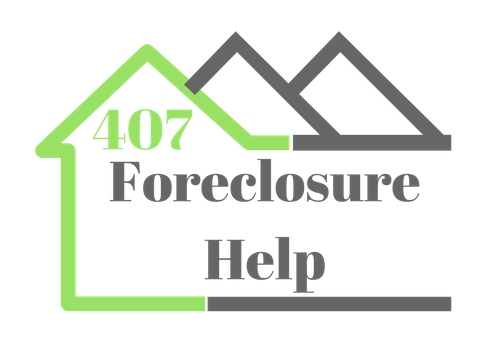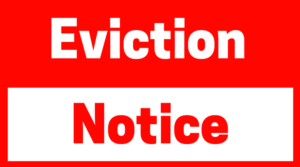Selling a Foreclosure: What You Need to Know
One option many homeowners who are going through or facing foreclosure may not be aware of is they have the ability to sell their home. Foreclosure is a long process and can be very stressful and disheartening for a homeowner but that doesn’t mean it is the end all be all. After defaulting on their mortgage many homeowners looking for a solution may ask themselves; “Can I sell my home if it is in foreclosure?” The answer to that is yes you can.
As the homeowner, you can save your home by selling it and paying the lender what you owe. This includes everything such as back payments and any penalties. Though keep in mind you have up until the home is sold at auction which afterward you will no longer have any ownership or rights over the home. In some states, they allow “a statutory right of redemption” which is essentially a period of time which you can repurchase or sell your home after paying off what you owe to the mortgage company. Generally, from 30 days up to two years in some states.
What is Foreclosure?
Foreclosure is not a state of being but rather a state of being. When a homeowner misses or defaults on their mortgage the process is started. It is generally a long drawn out process that can be draining, but with this time you as a homeowner have time to look at your options try and save your home. The whole process can take anywhere from six months to a year depending on negotiations between you and your lender.
Selling Your Foreclosure
Up until your home is sold at auction or the bank takes possession you have the ability to sell your home. During this period of time, the home is considered to be in “pre-foreclosure” and you can try to negotiate and settle any debts between you and your lender.
Selling your home is one option to avoid foreclosure. The goal is to net enough to pay off everything you owe the lender. While you no longer will the own the home you won’t have to face foreclosure and the severe future credit and housing impacts it would have caused.
The first step in selling your home is informing your lender of your decision and that you plan to list the property with the intention of paying off the mortgage. Asking the lender to postpone a foreclosure auction or sale could be beneficial and get you more time to find a buyer.
Deciding to sell sooner than later will allow you more time to find a buyer at the right price and help alleviate some of the pressure of the deal. Be sure to confirm with your lender how much time you have before the property will have to go to auction. Many of this depends on the state in which you live. A lender can auction off a property in less than a month while in other lenders have to wait a year.
Get a Real Estate Agent
When facing foreclosure, it is a race against the clock, and time is important. Hiring a foreclosure should be one of your first priorities so you can figure out how much your home is worth. A good agent can run a market analysis and help anticipate how much you can expect to sell your home for and if it would be enough to pay off your mortgage. Sometimes a real estate agent can also negotiate with lenders to reduce the amount they will take in a short sale to help save the property.
Short Sales
Foreclosure can be a tremendous headache and burden for you, but it also a pain to lenders. They are a legal, financial and public disaster which is why some lenders will agree to a short sale to sell your home for less than what you owe. Agreeing to a short sale is a desperate action on the lenders part as they don’t want to lose money on the mortgage but also do not want to spend their time on the foreclosure and the accompanying costs.
After spending time on filling out paperwork and explaining how you defaulted and the ways you seek to improve, talk to your lender and you might be able to persuade your lender to work with you on a short sale. Once again, a realtor would be beneficial in negotiating on your behalf.
The main positive to a short sale is you avoid foreclosure and don’t have to worry about the huge hit to your credit score or the impact on future housing.
What Else Can You Do?
The main thing you don’t want to do is hide or avoid your lender. Once you default and start getting behind your mortgage payment it is important to communicate and have a relationship with your lender. Most lenders will reach out in attempt to figure out a solution. If after they try to contact, you there is no response lenders can go ahead and start the foreclosure process. Communicating allows you to get a chance to find a solution or get more time.
Some other ways to help save your home include:
- Restructure the loan: Though not always an option or that the lender will be willing, some lenders will restructure your monthly payments to allow you to repay missed payments over time. This option may also allow you to reduce your interest rates. Though be sure to have all your reasoning, budget, and plan before approaching your lender.
- Ask for forbearance: Depending on the situation some lenders may agree to reduce or even suspend your payments for a temporarily to give you time to sort out short-term financial difficulties. Though you will need to provide evidence you will be able to resume payments.
- Budget: Harder said than done, budgeting will allow you to find ways in your life to save money and put towards your mortgage and other needed bills.
- Search for money: Though you think you may have exhausted all options, be sure to look at all options before losing your home. Have you liquidated everything? Can you take public transportation and sell your car? Side jobs? Looking at all your options can help you catch up on your default payments or make a plan of action.
Foreclosure is a long and hard process. Facing the possibility of losing your home is something no homeowner wants to go through. At 407Foreclosure Help, we strive in helping homeowners find the best option for them whether that be a short sale, direct sale, or talking and creating a plan with your lender. Reach out to us today at (321) 430-1412 or filling out the contact form here! Don’t go through foreclosure alone. Learn your options. Preserve your credit.



2 thoughts on “Selling a Foreclosure: What you need to know”